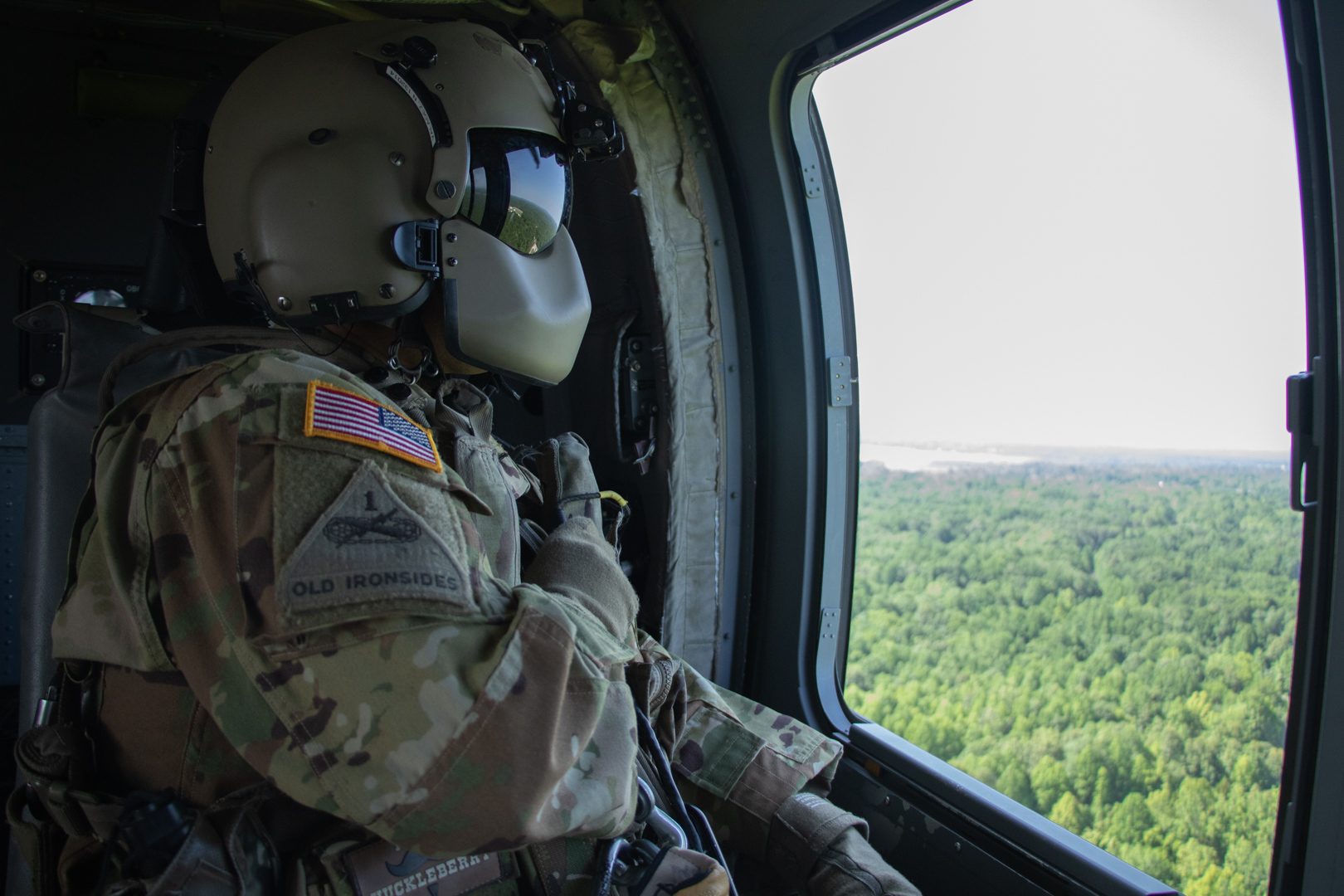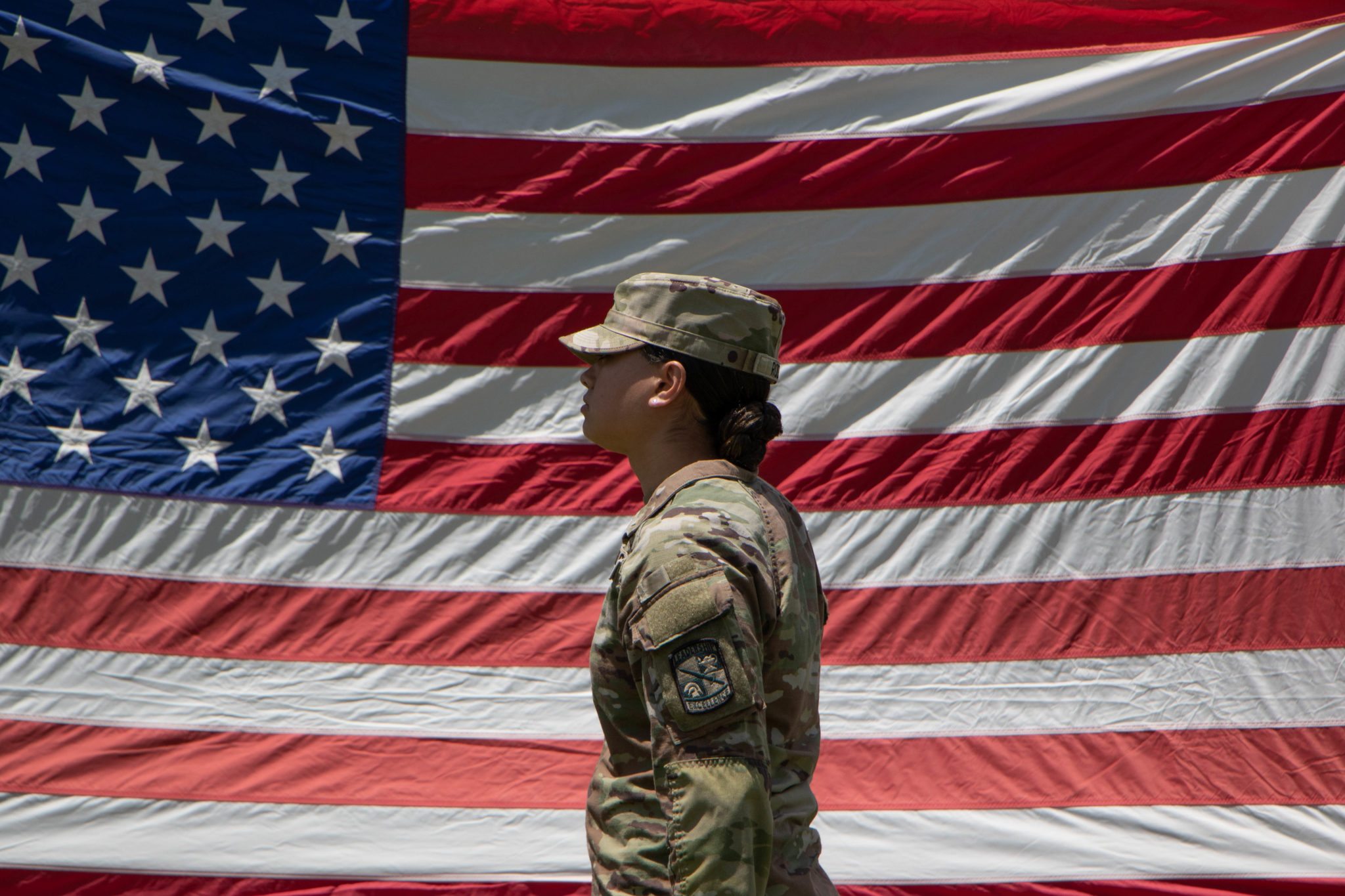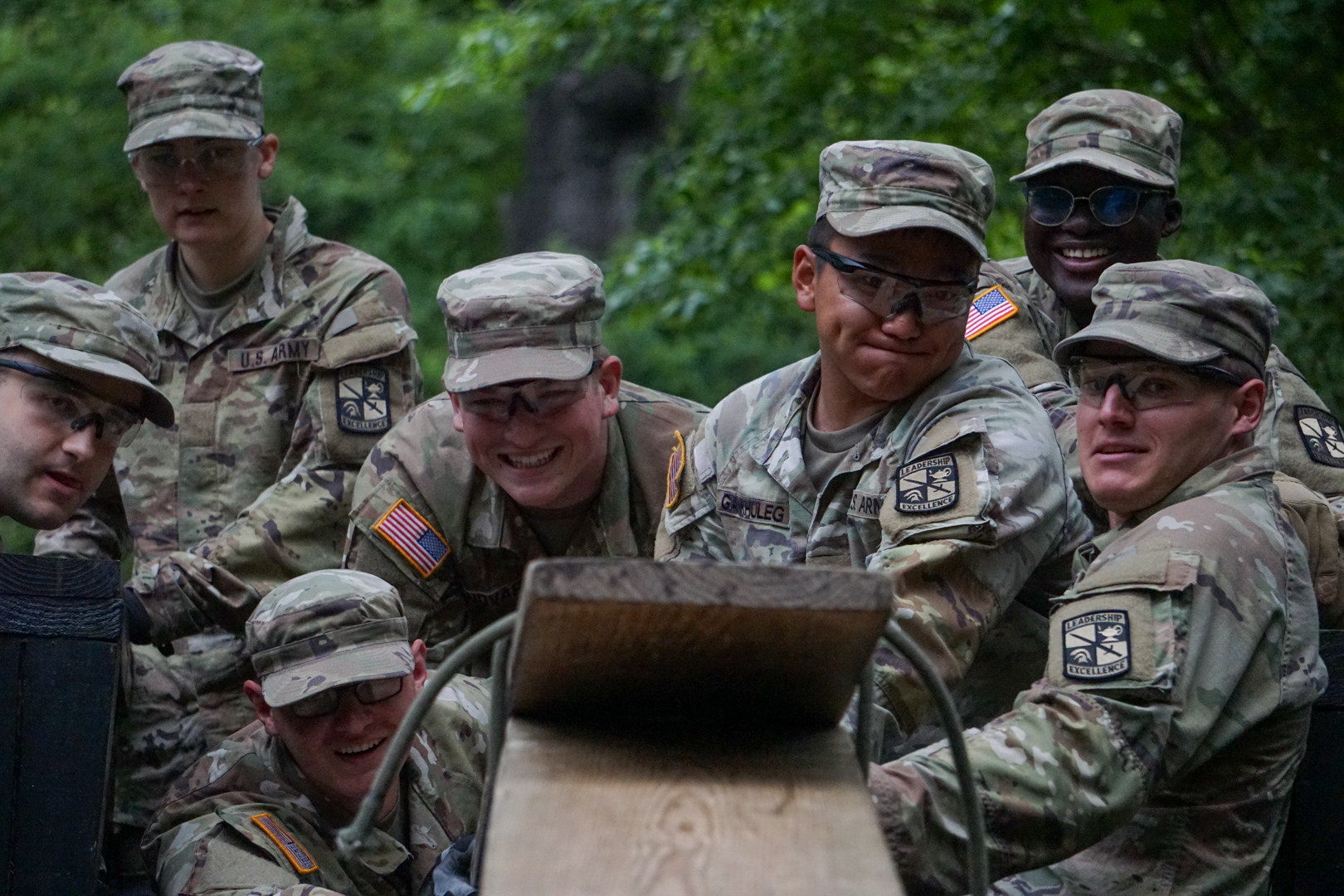By: Madison Thompson
FORT KNOX, Ky. – 2nd Regiment, Advanced Camp, arrived at Harmon Hall, the Central Issuing Facility, June 28, to return equipment and gear used during Cadet Summer Training. If gear was not issued to Cadets by their host program, the CIF issued gear and equipment so Cadets could obtain the most experience during CST.

Advanced Camp, 2nd Regiment, completes CIF Return, June 28. Photo by: Madison Thompson
“Today, we’re basically just doing gear turn in. So, stuff that we didn’t have, they were nice enough to issue it here. Then, we have to work really hard to make sure it’s clean because, if it’s not, they will make us clean it until they accept it,” said Cadet Christian Zvokel, University of Iowa, Bondurant, Iowa.
Gear and equipment are essential for training and, therefore, the CIF is crucial for CST.
“CIF, in general, is really important because, without this gear, we can’t train. A lot of this stuff is essential to us being out there. Like our ACU’s, something to wear to keep us protected from the sun and any other things out there we might experience out in the woods,” said Cadet Derek Kennedy, University of Maine, Bangor, Maine.
Gear and equipment is not only essential for training, but safety as well.
“There’s the gloves, eye-pro, Kevlar. That’s another thing that just goes with keeping us safe. Then there’s all the other gear that comes with that like the rucksack … That’s how I lived the past 20 days out in the field. I had a ruck sack on my back and everything that I had came with me wherever I went. So, really essential to everything we’ve done,” said Kennedy.
These future leaders will have to become familiar with the process of signing out equipment, being responsible for the care of that equipment as well as its safe return.

Advanced Camp, 2nd Regiment, completes Central Issuing Facility gear return, June 28
Advanced Camp, 2nd Regiment, completes CIF Return, June 28. Photo by: Madison Thompson
“This isn’t the first or the last time that they’ll come to CIF. It’s important for them to understand the importance of taking care of their equipment. So, a lot of times, you’ll come and you get your equipment and it’s nice and clean. So, you have to turn it in in the same condition,” stated Capt. Nathan Elkins. “When these guys become lieutenants, they’re responsible for Soldiers and they’re responsible for equipment. It goes back to being responsible for what they signed for and what they need, taking care of it, making sure it’s clean, making sure it’s functional.”
Cadets, soon to be 2nd lieutenants, will have to learn these skills to be effective leaders.
“They need to understand that process so that when they’re telling their platoon and they’re giving out that guidance and direction that they understand exactly what it entails,” explained Elkins.
For the 2nd Regiment, Advanced Camp, graduation is just around the corner. After 31 days of training, Cadets reminisce about their training and their favorite parts as well as advice for future Cadets and leaders.

Advanced Camp, 2nd Regiment, completes CIF Return, June 28. Cadet Derek Kennedy, University of Maine, Bangor, Maine completing CIF return
Photo by: Madison Thompson
“I think my overall favorite part about training is the fact that I get to work with so many different types of people. Being from Maine, I’d say there’s not a whole lot of diversity where I come from … So, it’s nice to be able to come down here where I have a bunch of different Cadets from a bunch of different programs … That’s pretty cool. I just like the variance of people that you get to work with. It gives you different perspectives on what you’re doing. You get to see how another person does it and that expands your mindset,” said Kennedy.
“We all go through this. Just come here, try to have a good attitude and try to have fun. You and your platoon mates are going to be awesome and go through the suck together. It’s a really good bonding,” said Zvokel. “Focus on the people, focus on the good experiences and you can get through it.”
Cadet Summer Training brings 8,200 Cadets through Basic and Advanced Camp this summer on Fort Knox. These camps are designed to help challenge, grow and improve various skills and leadership qualities within the Cadets. If you think you have what it takes to be a Cadet or if you are interested in a job after college click the following link: https://my.goarmy.com/info/rotc1/index.jsp?iom=IP08-AUTO-R1NA-BR-XXX-XX-XXX-MO-XX-X-BRCMAC:IP08




